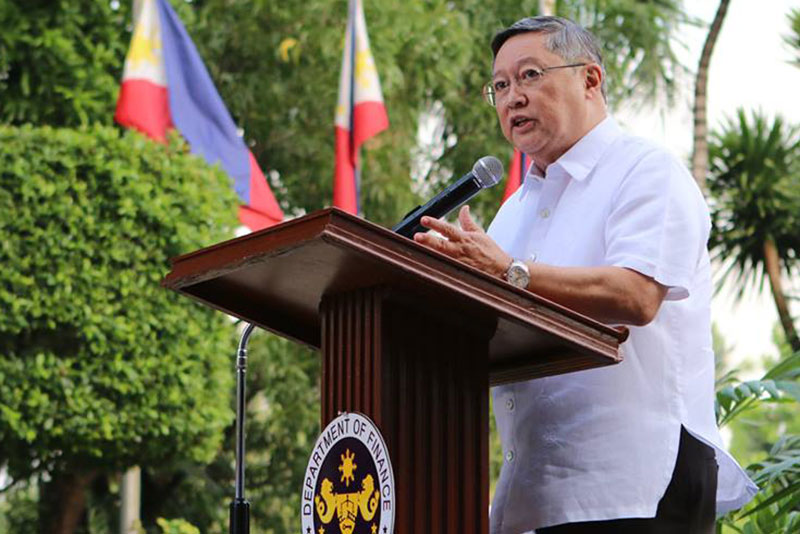Philippines: DOF sees faster economic expansion in 2018
MANILA, Philippines — The Department of Finance on Tuesday said it expects the economy to grow faster in 2018 despite firming up below market expectations in the fourth quarter of 2017.
The country’s gross domestic product — or the value of all finished goods and services produced in the country — grew 6.6 percent in the fourth quarter, slowing from the upwardly revised 7 percent in the previous three months.
The October-December GDP settled below market estimate of 6.7 percent, but nonetheless matched the growth rate recorded in the same period in 2016.
The fourth quarter figure placed the country’s full-year GDP performance to 6.7 percent, slower than 2016’s 6.9 percent but still within the government’s 6.5-7.5 percent growth target range in 2017.
Finance Secretary Carlos Dominguez III said the additional revenue take from the tax reform program, official development assistance deals, and float of 10-year US dollar-denominated bonds would ensure a steady revenue flow for the government’s aggressive spending on public infrastructure.
“As I said last year, there will be a more exciting growth narrative for the Philippines this 2018, more so now that all of the government’s plans to keep the country among the world’s fastest-growing economies have started falling into place,” he said in a statement.
The Philippines has a 7.0-8.0 percent growth target in 2018.
The Duterte administration has set an P8.44-trillion infrastructure spending plan until 2022 to spur GDP growth to 7-8 percent starting this year from a targeted 6.5-7.5 percent in 2017.
In a separate statement also on Tuesday, the DOF said the government will roll out 75 flagship projects worth $36 billion. The projects include six airports, nine railways, three bus rapid transits, 32 roads and bridges, and four seaports.
On December 19, President Rodrigo Duterte signed into law the Tax Reform for Acceleration and Inclusion (TRAIN) Act, which aims to generate revenue to fund a multi-billion dollar infrastructure program key to the government’s economic agenda.
Under the TRAIN law, personal income tax rates will be adjusted to shift the burden off lower-income segments toward the “ultra-rich” while projected revenues to be foregone will be offset by higher excise levies on petroleum and automobiles, among others.
According to the Finance chief, sizable personal income tax cuts under the TRAIN act would boost consumer spending and help spur greater economic activity.
Source: http://www.philstar.com/business/2018/01/23/1780605/dof-sees-faster-economic-expansion-2018


 English
English




